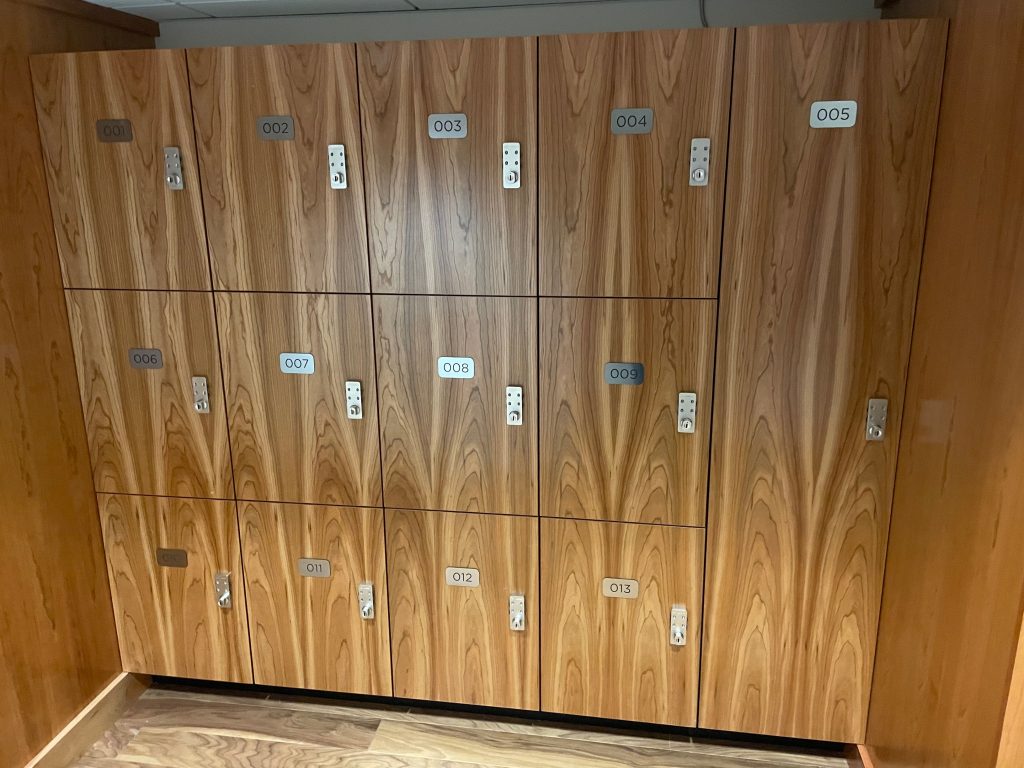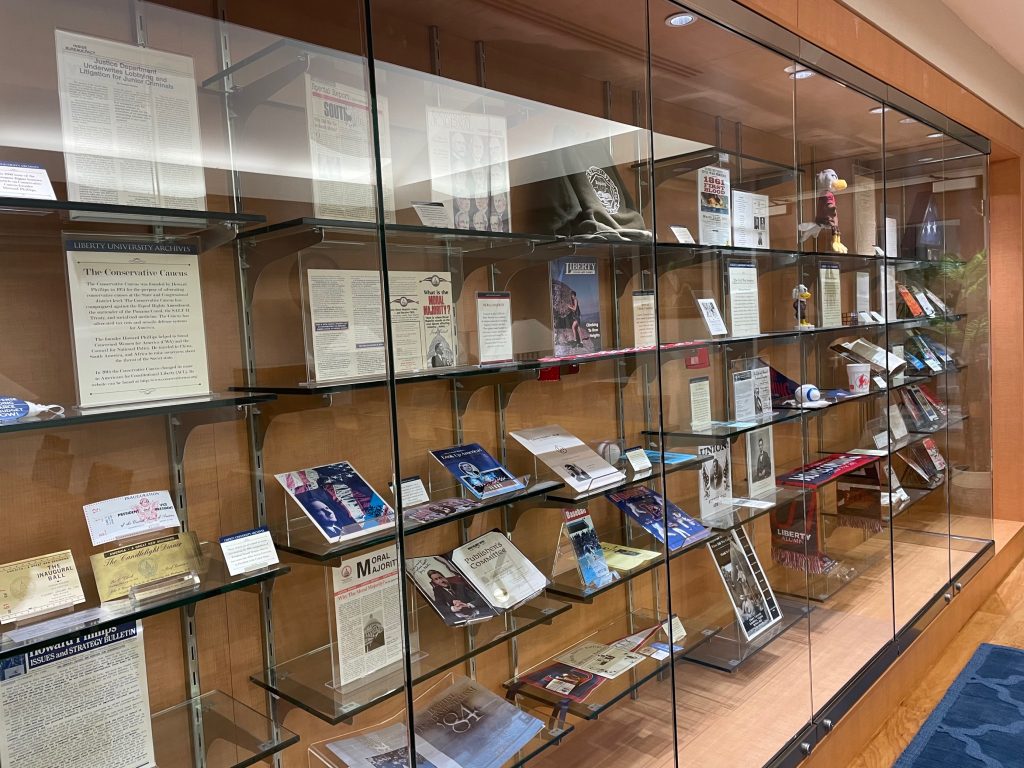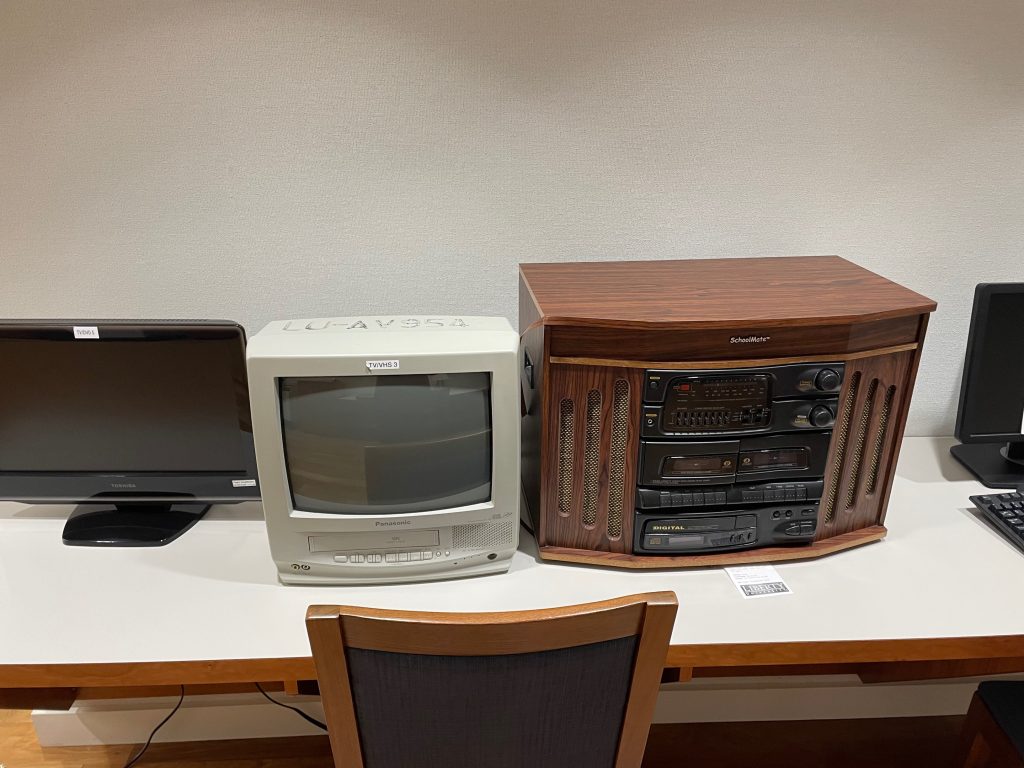For my special library blog post, I paid a visit to the Liberty University Archives. The archives consists of a lobby area with a help desk, lockers, an office, and a larger reading room. When you first walk into the lobby, you are greeted by a student worker staffing the front desk. They informed me that if I wanted to view any materials, I would need to store my belongings in one of the lockers. They told me that this is a cautionary measure because many books are fragile and none of the books in the archives are allowed to be taken out for checkout.

The purpose of the archives according to the website is to “preserve the history of Liberty University and its founder by gathering, organizing, preserving, and providing access to relevant materials of enduring value”. Within the archives are several special collections which are acquired to “organize, preserve, provide access and promote primary resources in their original form”. Much of the archive’s materials are only available to be viewed in the Archive reading room and there are also some materials that are classified as restricted that one must obtain written archivist approval to access.

In the reading room there are several divices that are available for use. There is a high-quality book scanner, a microfilm machine that is used for projecting and magnifying images stored in microform such as microfilm and microfiche. The student worker told me that there are many materials that are stored in this form in order to save space, so this machine makes these documents and images accessible to students. They also had a small screen set up with a VCR because there are many sermons and speeches in the archives that are stored on VHS.

Some of the notable collections that are stored in the archives are the Rowlette Civil War Book Collection, Military Oral Histories, the James and Shelley Lutzweiler Hymnal Collection and the Herbert A. Philbrick Library. Many of these collections have been personal collections that were donated over the years. The archives does accept donations but there is a specific criteria that it must meet before being accepted. There is a list of several items that they are seeking to add to their collection on their website.

In the archives is also a large pixel table that is essentially an iPad that is tabletop size where you can browse a timeline of the campus as well as university yearbooks. In addition to university yearbooks, the archives also preserves booklets, brochures, t-shirts, posters, and other university memorabilia.

So the tables with the lamps in the Liberty University Archives are so similar to what the special library I visited, The Library of Virginia, had. From reading your information, it seems that it does, “offer services within a specialized environment, such as corporations, hospitals, the military, museums, private businesses, and the government” (I Love Libraries, 2020) just with a university. It seems like they have a lot of donated collections from what you listed, which is interesting. Library of Virginia too has things it will accept and is looking for dealing with Virginia. I find it so interesting they have the large pixel table where you can view the timeline or really time capsule of the university, especially with all the memorabilia. That must be fascinating to the university’s history right there at your fingertips.
I Love Libraries. (2020). What libraries Do. http://www.ilovelibraries.org/what-libraries-do/about-americas-libraries
I have noticed that a lot (but not all) of special libraries have specific requirements to view the collection. This was true of my observation of the Folger Shakespeare Library. Researchers have to apply to use the reading room, and cannot take certain items with them.
Miranda,
I found your special library visit really interesting for a few reasons. First, there is a huge similarity in the purpose of the archive of Liberty University as there is to the archive of Regent University, which is where I completed my undergraduate degree. Preserving and maintaining records pertinent to the history of the institution was taken very seriously there, just as it seems to be at Liberty.
Once, when my partner was working for the IT department at Regent, he was called in to bring a new computer to the archivist. The archivists computer held so much important information that they sent my partner’s supervisor with him to help do a triple backup of the entirety of the harddrive, which he said was incredibly unusual for a routine task such as a computer swap. Given that Liberty takes the security of their archives very seriously in that they require patrons to store their personal items, I would imagine that they take great care to backup all of their digital information as well!
I also found it interesting that there are so many items stored in microform. I just had a conversation with the librarian of a special library earlier this week, and he made the comment, “Who even uses microfiche anymore?” Well, now I have an idea of where patrons may still be using this technology!
Thanks for sharing this beautiful space with us,
Allison
Miranda,
The Liberty University Archives seems like a place that I would like to visit myself. I can easily picture myself browsing around, perusing the special collections. I love it that there are sermons available on VHS tapes!
This library has a lot of interesting materials to offer. Thank you for sharing it with us!
Like the other facilities you have shown us at Liberty University, the archives are beautiful. I was fascinated by your description of the pixel table as I’m not certain I have ever seen one. That would be a great way to page through old yearbooks.